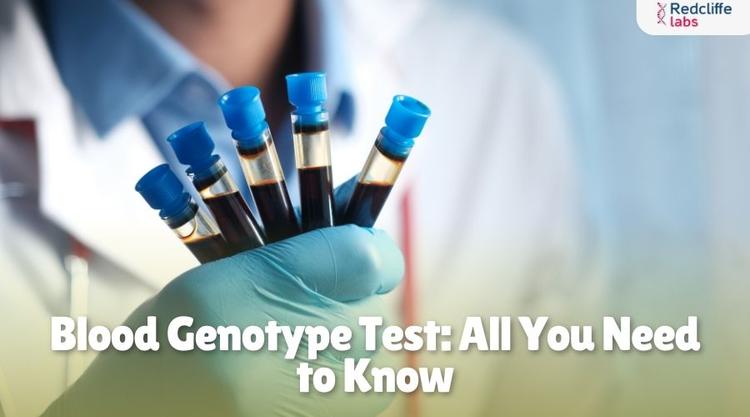Golden Blood: Its type, Benefits, and More

Medically Reviewed By
Dr Divya Rohra
Written By Sheena Mehta
on Jan 27, 2025
Last Edit Made By Sheena Mehta
on Jul 19, 2025

Did you know that a blood type called “golden blood" ever existed?
Amusingly, gold cannot be afforded by all, making it rare. Similarly, the Rh-null is the world’s rarest blood type, sometimes called “golden blood.”
Golden blood lacks Rh antigens in the red blood cells (RBCs), and it is estimated that less than 50 people worldwide have golden blood or Rh null blood type due to the absence of Rh factors or antigens in their red blood cells. So, without that wait, let’s discover it in detail.
Today’s blog explores the mysterious world of golden blood, including its significance, types, and more.
History and Origin of Golden Blood
The origin of golden blood can be traced back to a single individual whose blood contained rare antigens different from those of the other well-known blood types listed below.
- O positive, O negative
- A positive, A negative
- B positive, B negative
- AB positive, AB negative
Additionally, the first confirmed case was reported in an Aboriginal Australian woman in 1961. Her routine blood typing found no A, B, or Rh antigens. Nonetheless, the case in India was reported back on July 14, 2022, when a 65-year-old Gujarati man had a cardiac arrest.
Significance of Golden Blood
Golden blood is simply unique and rare. Not every second or third person has Rhnull blood type, but despite its rarity, it has potential applications, especially in the medical field.
- Life-saving treatments: Golden blood is a universal donor, and medical professionals use it for a blood transfusion without worrying about compatibility issues.
- Can be used as a substitute: Although a Rh-null person does not have more protein than one with more Rh proteins, it is compatible with other blood types and can be used as a substitute in critical situations.
- Relevant in scientific research and development: Golden blood contains properties that proved beneficial in developing immunoglobulin-based medicine, which helps prevent Rhesus Disease (also known as hemolytic disease of the fetus and newborn (HDFN)).
- Leaves a deep impact: The existence of the Rh-null has revealed that even a single genetic variation can be powerful enough to make a profound difference.
Limitations or Drawbacks of Golden Blood
Golden blood is uncommon and is thought to affect one in every six million people globally.
As far as the distributional statistics of golden blood are concerned, as per experts, less than 0.1% of people have golden blood that flows through their veins. Not all, but some parts of South America exhibit a population with golden blood.
Below are some challenges that a Universal Donor, “ Golden Blood,” faces:
- Fascinating Paradox: Rh-null blood is compatible with anyone, making a blood transfusion convenient. However, finding compatible blood with Rh-null blood becomes challenging.
- Blood transfusion challenges: People with the golden type may also suffer from blood transfusion challenges. If their blood is exposed to Rh antigens from another person’s blood, corresponding autoantibodies will likely form, resulting in a severe transfusion reaction.
- Rh incompatibility during pregnancy: Another possible complication of people with golden bloodshed light on Rh incompatibility during pregnancy. It indicates if the pregnant is Rh null and the baby is Rh positive, and if her blood is Rh sensitized, it can lead to serious illness or cause fetal anemia, miscarriage, stillbirth, or even hemolytic anemia.
Additionally, mild to moderate hemolytic anemia since birth can cause structural defects, such as a mouth-like or slit-like shape, abnormalities in the red cell membrane, extreme fragility due to the absence of the Rh complex, or abnormal blood cell volume.
- A hemolytic crisis occurs when large numbers of red blood cells are destroyed, causing kidney failure and other complications.
Golden Blood Type Classification
Golden Blood, scientifically known as Rh-null blood, is an extraordinary and rare blood type with huge relevance in the medical field. Additionally, about 61 Rh (Rhesus) antigens are absent from the Rh-null blood group system, making it unique.
Golden Blood Type Classification
Golden blood is a crucial blood type that is medically important. It is considered a lifeline for individuals with other rare blood groups.
Rh-bull blood is often included in the Rh blood group system. Usually, people have common blood types (like A, B, AB, and O) classified by the ABO system.
The Rh-null’s classification depends on the absence of Rh antigens. It is connected with the standard ABO classification and can be present in individuals with any ABO blood type (A, B, AB, or O).
Also read: Blood Tests For Anemia
Who can have Golden Blood?
Golden or Rh-null blood results from a genetic mutation, especially in the RHAG gene. The Rh-associated glycoprotein must be present to direct the Rh antigens to the RBC membrane.
Additionally, an RHAG mutation can cause long-term, mild, and hemolytic anemia. Below are the following conditions that can put you at a higher risk of golden blood:
- Consanguineous marriage: This includes marriages between close cousins, brother-sisters, or anybody who is a distant relative.
- Autosomal genes contain disease traits and can be passed down from parent to child.
- Changes or complete deletion of certain genes can lead to changes in the genetic code and may produce incorrect proteins.
What are the top three rarest blood types?
The top three rarest blood types are
- Rh-null or golden blood type. It is found in only 50 people worldwide and lacks all possible antigens.
- AB negative with less than 1% of the world’s population. It can receive blood from all other Rh-negative types, A, B, AB, and O, while it can only donate blood with AB blood, both Rh-negative and positive.
- HH blood type, rare ABO group, or Bombay blood group: It is an extremely rare blood phenotype discovered in 1952 by Dr. Y.M. Bhende. Approximately 4 per million worldwide have it. It is estimated that one in every 10,000 people living in Bombay may have it.
Conclusion:
Golden blood, or the Rh-null type, is extremely rare,e, with fewer than 10 active donors. However, it is well known as a universal donor and can be safely transfused to anyone with rare Rh blood types. Potential complications associated with this rare blood type include a limited number of donors, geographical distribution, and transporting and storing issues.
Frequently Asked Questions
1. What is golden blood?
Golden blood is the rarest blood type in the world, and fewer than 50 people have it. Golden blood is also called the Rh null blood group, with no Rh antigens on their red blood cells.
2. What are the three rarest blood types in India?
India's three rarest blood types are B negative (B-ve), with only 1.5 % of the total population having it. AB negative (AB-ve) is found in only 0.6% of the population, and AB positive (AB+ve) is found in 3.4%.
3. What is the major cause of golden blood?
The major cause of golden blood is genetic mutation, which is the tendency to pass from one generation to another.



